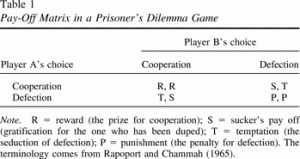Dickinson to Durban » Climate Change, Mosaic Action » Complexities of the Negotiations
Complexities of the Negotiations
The Climate Policy Simulation is an exercise created by Professor John Sterman at MIT to allow students to understand climate negotiations through actually attempting to negotiation for different countries. On Thursday, September 15, 2011, the Africa Mosaic students and one of Dickinson’s first year seminar classes came together to participate in these negotiations. Each student was to represent a nation state which was part of one of the three blocks (developed countries, rapidly developing countries, and other developing countries) involved in the talks. The students were not required to have a deep understanding of their country’s climate change policy; however, each student received an informational briefing on the negotiations from their respective block’s perspective prior to the negotiations. Over the course of three hours, the blocks debated with each other over how to address and solve climate change, and the results were messy.
I never appreciated how difficult it would be for countries to set aside their interests for the long term benefit of the world as a whole. But even in a college classroom full of students acting out the roles of different countries (about which they know only basic facts), the results were depressing. Representing Bangladesh as a part of the “other developing nations” group, I was trying to convince the two other blocks that we needed their monetary support to halt climate change. Bangladesh does not have the resources or the economy to transition to sustainable growth on our own. However, the students representing the developed nations refused to offer more than a few billion dollars in aid. After three hours, we still did not come to any agreement on the amount of money they would put into the fund to help developing nations. Additionally, the rapidly developing block refused to make a substantial sacrifice of their unsustainable developmental progress to prevent the effects of global warming. We did not come to an agreement which every block agreed on; actually the results did not fully satisfy any block’s desires or protect the environment. Through this exercise, I realized how complicated it is to make sacrifices when you do not know what will come in return in the short term (in essence, the prisoner’s dilemma).

Countries hesitate to agree to the mutually beneficial option for fear that others will not hold up their side of the deal.
Further, the block mentality of the negotiations allowed all the countries within each block to form one identity which is extremely unrealistic. As the “other developing nations” we solicited support on the platform that all of our countries are poor and will disappear in the near future due to deforestation, desertification, and sea level rise if countries do not act now to slow global warming. However, this is a gross simplification of the complex dynamics within each block. Realistically, Nigeria, an OPEC nation, would not have the same perspective as the Maldives on climate change although they are both in the same block. Thus, negotiations would have been much more complex had we all actually represented our countries. We may have even spent the entire time negotiating within our blocks and never interacted with the other blocks because we had so many differences to overcome.
Overall the simulation was helpful in that it demonstrated the complexities of the negotiations. The fact that the moderator, not the blocks, eventually had to make some of the final decisions so that the simulation would end on time is demoralizing because if we as a group of college students cannot conclude our simple simulation, the difficulty of the world agreeing on actions to take against climate change is immense.
Filed under: Climate Change, Mosaic Action · Tags: Anna McGinn, Bangladesh, block, climate change, climate negotiations, Climate Policy Simulation, John Sterman, September 15 2011








Recent Comments